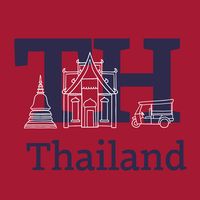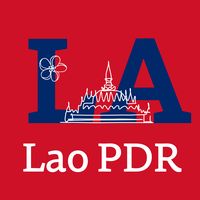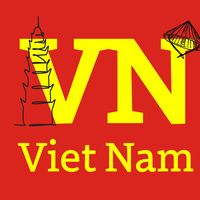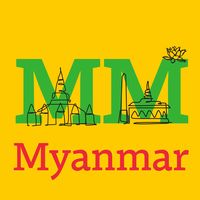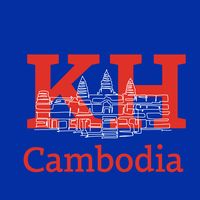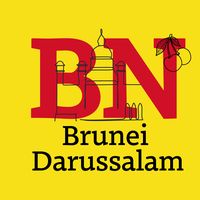Mobility Funding Guide: the Philippines

The Mobility Funding Guide: Funding Opportunities for International Cultural Exchange in Asia, Guide to the Philippines provides an overview of funding available for cultural project to and from the Philippines.
In this latest edition for the Philippines, readers can find funding opportunities by country in most artistic and cultural disciplines. There are 17 sources of funding that have a focus on Asia.
To make sure that the publication uses reliable sources, only regular opportunities accessible online are listed. This means that there are a number of resources that are not listed: funds for which information is only available offline, funds that are not based on open calls, and ad hoc or short-term funding.
The guide is an attempt to gather all the resources in one document and is by no means complete. Rather, it is a starting point for research into funding for mobility in the context of the Philippines. You can learn about how to read the mobility funding guides here.
Since 2012, the Asia-Europe Foundation (ASEF) and On the Move (OTM) have jointly presented the Mobility Funding Guides for International Cultural Exchange for the 51 countries of the Asia-Europe Meeting (ASEM).
Download the guide of the Philippines here and the regional guide here.
If you're an artist or cultural professional from Philippines, explore this section for funding for the Philippines sector:
1. Alliance Française de Manille
- Philippine Artist Residency Programme: The Philippine Artist Residency Program (PARP) sends a Filipino artist for a residency and exhibition in Centre Intermondes in La Rochelle, France as part of the Alliance Française’s cultural exchange initiatives. The residency is open to all eligible Filipino visual artists.
2. Art Fair Philippines
- ArtFair PH/Residencies: The ArtFairPH/Residencies is a project under the Art Fair Philippines, where five different artists across any discipline will be selected for five residency programmes taking place in different venues around the Philippines. The programme aims to enable artists to explore their art practice in environments other than their studios and homes.
3. National Commission for Culture and the Arts (NCCA)
- Competitive Grants Programme: The NCCA Competitive Grants Program is open to artists and cultural groups whose works will contribute significantly to the Filipino cultural legacy.
4. The Japan Foundation, Manila
- Arts and Culture Grant: Supports activities that promote, introduce and deepen understanding of Japan, its language and culture, as well as to support projects featuring imaginative cultural initiatives that reinforce the solidarity between Japan and the Philippines. The grant requires a Japanese collaborator to agree in writing to be a part of the project and covers partial expenses on a cost-sharing basis.
While the guide focuses on funded types of support relating to mobility and cross border travels, here are additional funding schemes available that support other project related expenses:
1. Australia-ASEAN Council
- Australia-ASEAN Council (AAC) grants: Provides seed funding for innovative projects that support knowledge development. Multi-country applications with strong community outreach and lasting partnerships are encouraged to better develop relations between countries. While only Australian cultural professionals and organisations are eligible to apply, applicants must show evidence that they will be working with a Southeast Asian partner.
2. Goethe-Institut
- International Co-production Fund (IKF): Supports co-productions worldwide that grow out of collaborative and dialogue-based working processes in the fields of music, dance, theatre, and performance art. The fund promotes innovative productions and international cultural exchange as well as new approaches to intercultural collaboration and networking. Individuals from the performing arts sector and particularly those from Cambodia, Indonesia, Lao PDR, Malaysia, Myanmar, Philippines, Thailand and Viet Nam are encouraged to apply to realise an International project partnership and artistic collaboration.
3. International Documentary Film Festival Amsterdam (IDFA)
- IDFA Bertha Fund: This fund lends assistance to film documentary professionals from Brunei Darussalam, Cambodia, Indonesia, Lao PDR, Malaysia, Myanmar, Philippines, Singapore, Thailand, Viet Nam to produce their creative documentaries and garner international exposure. The fund supports documentaries that use strong visual treatments, focusing on both unknown and seasoned filmmakers, supporting their breakthrough from marginalised positions.
4. International Film Festival Rotterdam
- Hubert Bals Fund: The Hubert Bals Fund is designed to help remarkable or urgent feature films by innovative and talented filmmakers from Africa, Asia, Latin America, the Middle East, and parts of Eastern Europe on their road to completion.
5. Sørfond / The Norwegian South Film Fund
- Sørfond: The fund aims to strengthen film as a cultural expression, and support freedom of speech and human rights in Development Assistance Committee (DAC) countries where these rights are limited for political, social, or economic reasons. The fund provides production support to independent film producers making fiction or documentary films, and seeks to forge close cooperation between Norwegian filmmakers and filmmakers in DAC countries.
6. World Cinema Fund
- World Cinema Fund (WCF): Promotes filmmaking in regions with a weak film infrastructure, while fostering cultural diversity in German cinemas as well as supporting collaboration between German and producers and partners in WCF countries such as Brunei Darussalam, Cambodia, Indonesia, Lao PDR, Malaysia, Myanmar, Philippines, Singapore, Thailand, Viet Nam. The WCF provides support in the fields of production, post-production and distribution for feature length films and creative documentary features (minimum length 70 minutes).
Similar content
posted on
13 Mar 2024
posted on
13 Mar 2024
posted on
13 Mar 2024
posted on
13 Mar 2024
posted on
13 Mar 2024
posted on
27 Mar 2024

